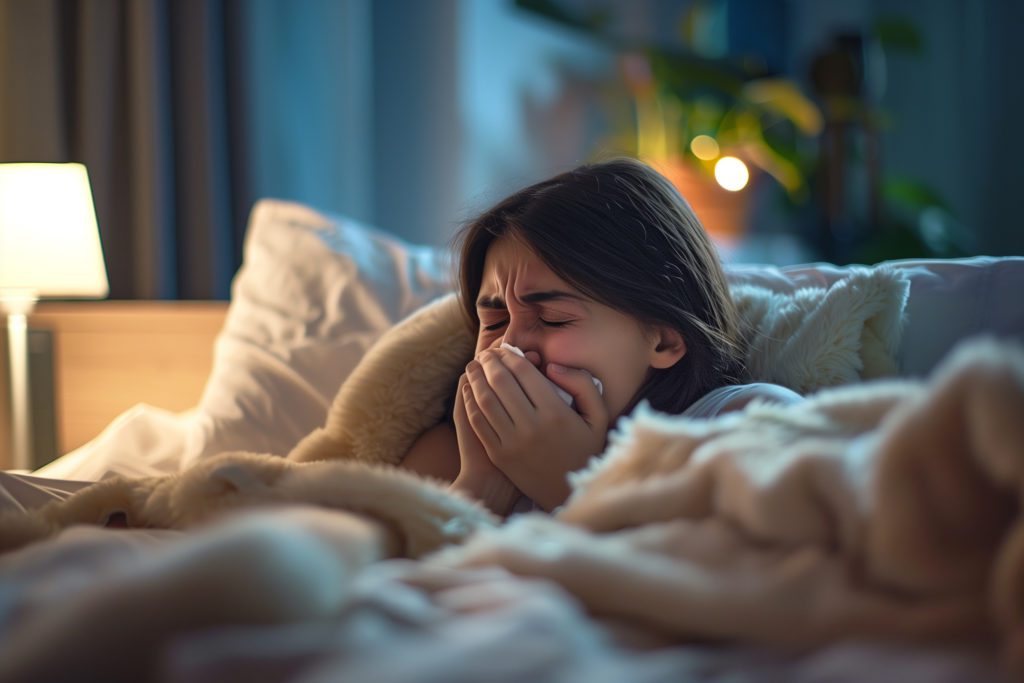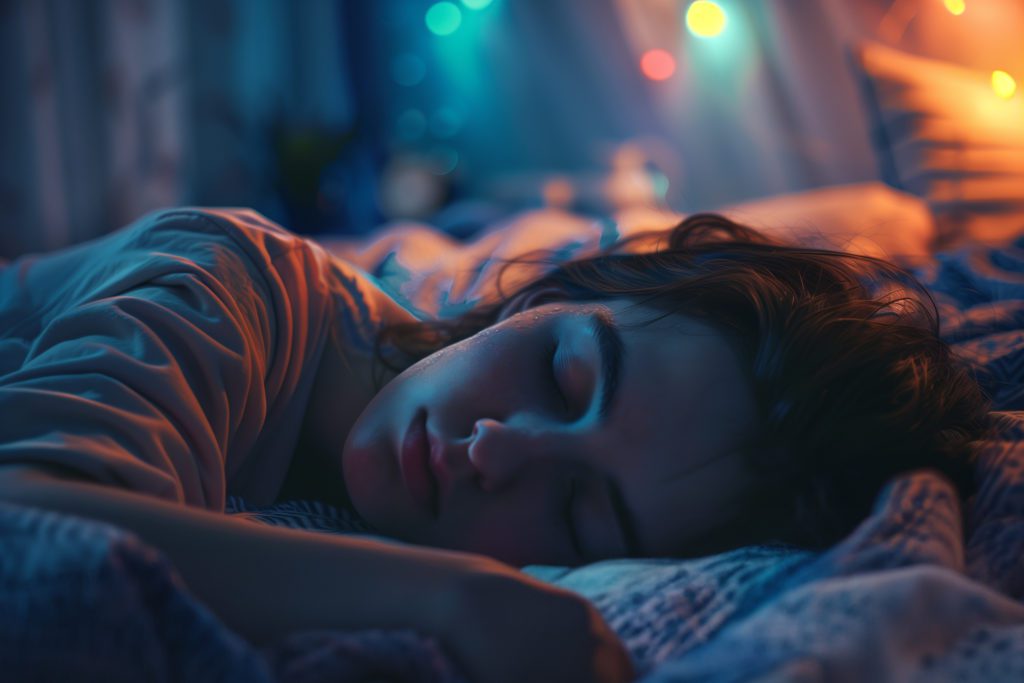
The Science of Sleep and Body Temperature Regulation During Winter
During wintertime, your quality of sleep and body temperature become tightly interconnected. Learn more about this relationship and how to sleep better.

Throughout summer, many people have a hard time cooling down enough to fall asleep comfortably. However, the wintertime comes with its own set of issues, too. Although your body temperature naturally decreases as you prepare for bed, health conditions, hormone fluctuations and your sleep environment can all affect this process. Your body's ability to thermoregulate can even be affected by a change in seasons, making it harder to fall asleep and get out of bed in the morning when the days are darker and colder than usual. Fortunately, there are some things you can do to sleep well, no matter how low the temperature drops.
Thermoregulation and Colder Months
During wintertime, decreased outdoor temperatures can make it more difficult for your body to maintain an optimally regulated internal temperature, especially if you're sensitive to the cold. Several factors play a role in how your body maintains temperature:
- Skin - Your skin protects your internal organs from external factors (the environment).
- Sweat glands - If the body becomes too hot, your sweat glands produce water. This sweat evaporates from the skin, creating a cooling effect.
- Circulatory system - Your blood vessels enable optimal blood flow by adapting to outside temperatures.
- Hypothalamus - The portion of your brain that uses external information (the temperature) to determine what your internal body temperature should be (colder or hotter).
While there is a connection between sleep and body temperature decrease throughout the night, there are still no definitive answers as to why this occurs. Most scientists generally believe that this decrease helps conserve energy while directing the energy available to other parts of the body. Thermoregulation becomes more challenging during the winter. Additionally, babies and older adults find it more difficult to control their body temperature and lose heat more rapidly.
Why Does It Become More Difficult To Sleep During Cold Nights?
While your body does a great job of decreasing its temperature at night, it becomes more challenging to maintain a proper temperature for bedtime when it's colder. This may be particularly true for older adults, whose ideal ambient sleep temperature tends to be somewhere between 68°F (20°C) and 77°F (25°C). Most people fare well in an environment between 60°F and 68°F, but when it becomes too cold, your body has difficulty relaxing enough to allow you to fall asleep. Once you fall asleep, chances are it becomes more challenging to get out of bed in the morning, especially if it's still chilly outside.
Tips To Help You Sleep During the Winter
While there isn't much you can do about the outdoor temperature, you can prepare for cold winter nights in several other ways. By taking the time to do a bit of prep work beforehand, you'll have everything you need to sleep soundly all evening long.
Pile On the Layers
The easiest way to warm up in the winter is to outfit your bed with several thin and thick blankets. Multiple layers do a better job of trapping in body heat than a thick comforter. Additionally, it's easier to adjust since you can add or remove layers as necessary throughout the night. If possible, choose wool or down comforters since both are excellent at insulating heat. A fleece blanket can also help you retain warmth during colder nights.
Switch Out Your Bedsheets During the Wintertime
Many people switch out their bedsheets to flannel options during the winter, especially if they live in cooler climates. Flannel provides extra warmth and insulation, all while remaining breathable. When purchasing flannel bed sheets, check the packaging to ensure that they are fully flannel and not brushed cotton, jersey or cotton flannel blends, as these options may not insulate as well.
Fix Any Pesky Drafts
Drafts can cause you to lose all the heat in your room and leave you shivering in the middle of the night. Assess your windows and doorways using your hands, or use a stick of incense and hold it up to your windows to check if the smoke blows in a different direction. If you find any leaks, you can seal them with draft stoppers, blankets and rolled towels. Another solution is to reverse the direction your ceiling fan spins so that it runs clockwise. This reversal will draw warmer air from the ceiling and circulate it around your room.
Pour a Hot Mug of Tea or a Warm Bath
By bringing up your body temperature before bedtime with a cup of tea or bath, you'll feel warmer and more relaxed. Try chamomile tea, which contains gentle sedating properties, making it a beneficial component in your sleep hygiene routine. A hot shower or bath can also relax your muscles and slightly increase your core temperature, preparing your body for a good night's sleep.
Choose the Right Pajamas
Just as you switch the sheets on your bed during wintertime, you should do the same with your pajamas. Choose flannel pajamas or other natural fabrics for extra warmth since they tend to be better insulators and are naturally breathable. They also warm you up just enough to not leave you feeling clammy or sweaty in the middle of the night. In addition, wearing a breathable pair of loose-fitting socks can help your feet retain heat, keeping you warmer throughout your body.
When it comes to creating the right wintertime sleep environment, it's important to do what works best for you. If you feel too hot with flannel sheets, skip them and opt for a few lighter layers on your bed instead. If your partner gets too hot at night, consider adding extra blankets to your side of the bed only. By trying out a few different ways to stay warm on winter nights, you're sure to find the ideal solutions to help you sleep better all season long.

Written by
Emily Mendez
Emily Mendez is a former therapist and mental health author. She is one of the leading voices in mental health. Emily's writing has appeared in eCounseling, SonderMind, and more. Emily is frequently interviewed by Healthline, Fatherly, INSIDER, Family Circle, and other national media for her advice and expert opinion on the latest mental health topics.
Download Pillow
Get help
Press & News
Legal
Connect
X (Twitter)
Company
Copyright © Neybox Digital Ltd.



